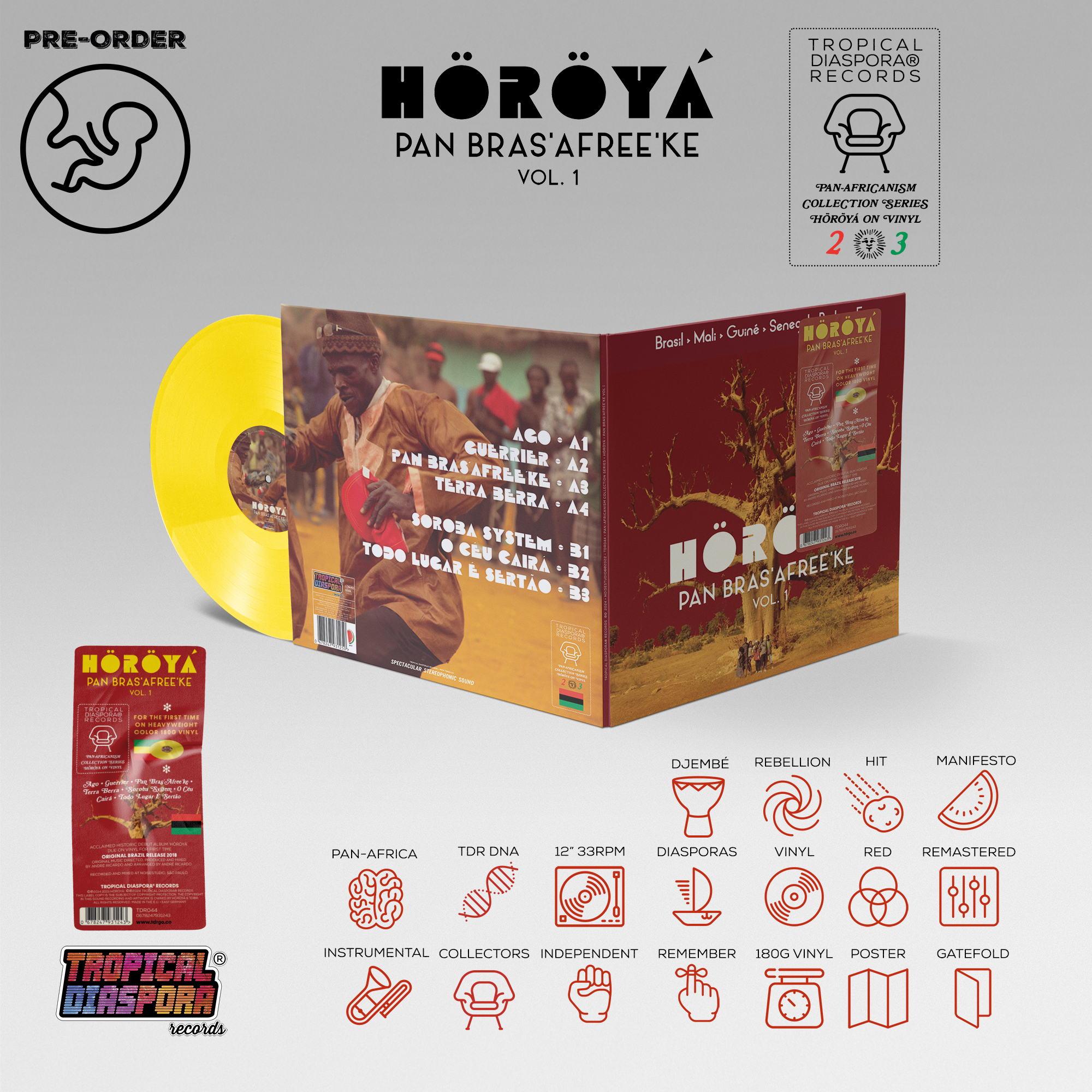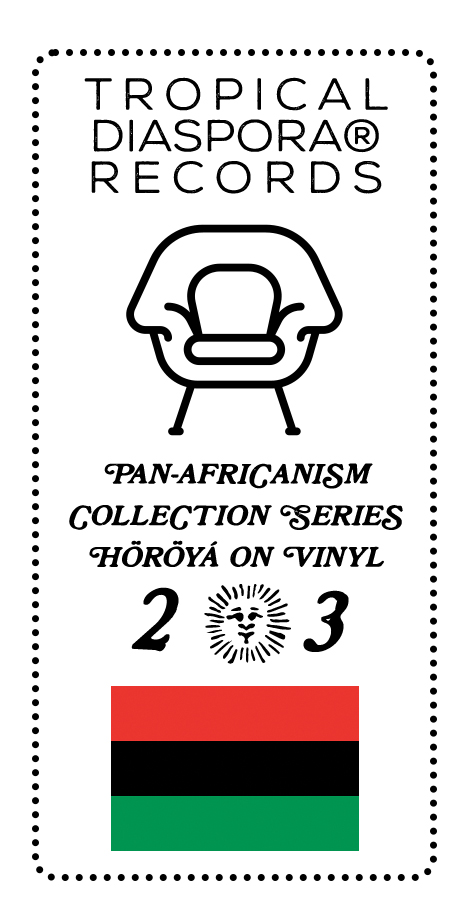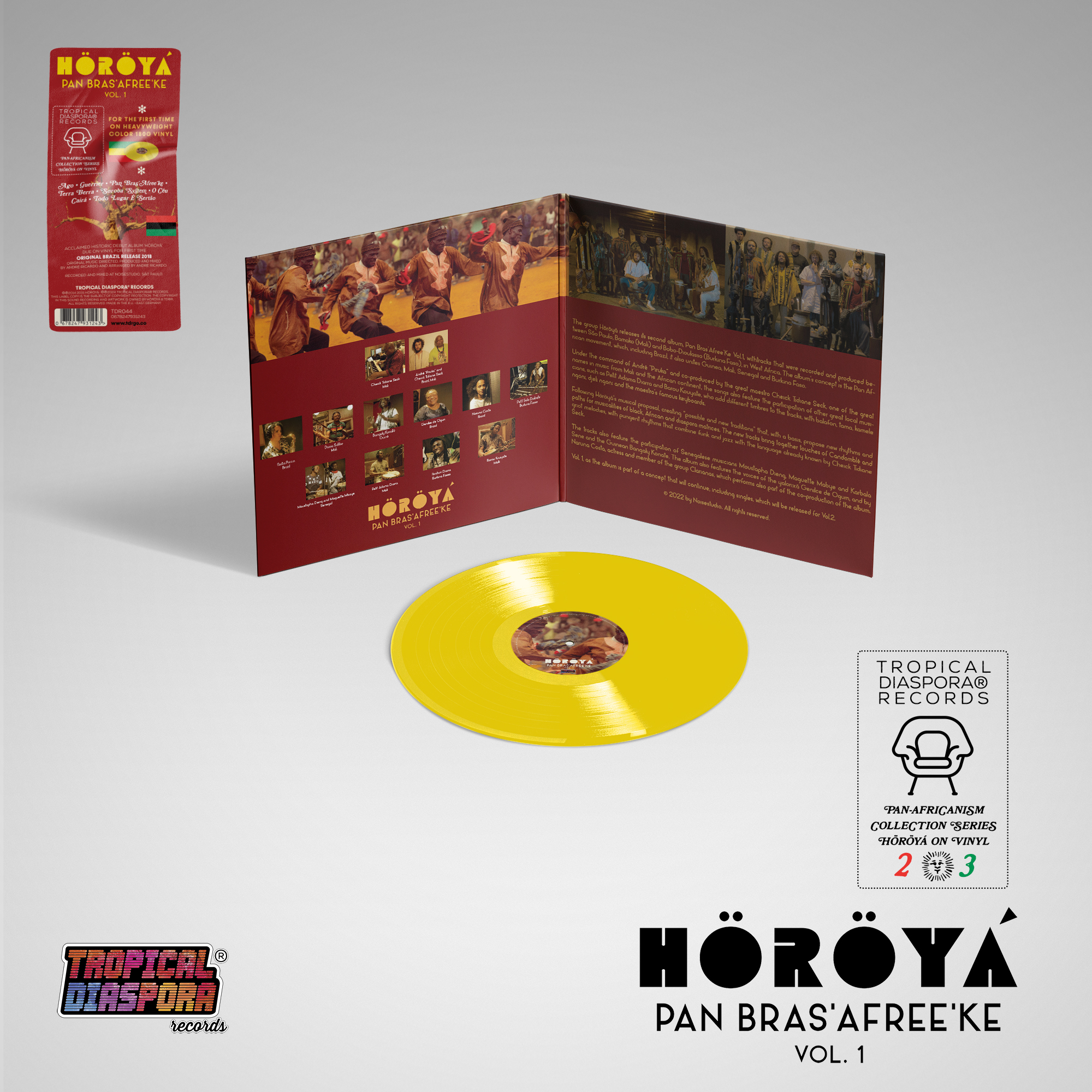Pan Bras’Afree’Ke Vol.1
Brasil > Mali > Guiné > Senegal > Burkina Faso
by HÖRÖYÁ
means in Malinke Freedom, Autonomy, Dignity
Tropical Diaspora® Records Pan-Africanism Collectors Series – Höröyá on Vinyl
Bandcamp Streaming
Höröyá´s Second Album
The group Höröyá releases its second album, Pan Bras’Afree’Ke Vol.1, with tracks that were recorded and produced in São Paulo, Bamako (Mali) and Bobo-Dioulasso (Burkina Faso), in West Africa. The album’s concept is the Pan African movement, which, including Brazil, it also unites Guinea, Mali, Senegal and Burkina Faso. Under the command of André “Piruka” and co-produced by the great maestro Cheick Tidiane Seck, one of the great names in music from Mali and the African continent, the songs also feature the participation of other great local musicians, such as Petit Adama Diarra and Barou Kouyate, who add different timbres to the tracks, with balafon, tama, kamele ngoni, djeli ngoni and the maestro’s famous keyboards. Following Höröyá’s musical proposal, creating “possible and new traditions” that, with a basis, propose new rhythms and paths for musicalities of black, African and diaspora matrices. The new tracks bring together touches of Candomblé and griot melodies, with pungent rhythms that combine funk and jazz with the language already known by Cheick Tidiane Seck. The tracks also feature the participation of Senegalese musicians Moustapha Dieng, Maguette Mabye and Karbala Sene and the Guinean Bangaly Konate. The album also features the voices of the yalorixá Genilce de Ogum, and by Naruna Costa, actress and member of the group Clarianas, which performs also part of the co-production of the album.
Afrobeat was in vogue some years ago. Everyone was looking at Africa for inspiration especially in the music and words of Fela Kuti, the great Nigerian musician who fathered Afrobeat from West Africa’s Highlife and the Afro-American funk that he encountered after being in contact with the Black Panthers in the US. In the West, the independent music scene was in crisis, and Afrobeat seemed to offer a good opportunity to redeem Western musicians who, before an empty and depoliticized present, thought that ‘becoming Africans’ could gave them a surplus much needed in the industry. The great drummer and composer of Africa ’70, Tony Allen began touring around, appearing in every festival in the West, and collaborating in every new record made. Some bands began to include musicians from the African diaspora who were used to legitimize the bands as a colorful extra and helped to authenticate rhythms and lyrics. Afrobeat was everywhere. It came from the West and reclaimed some glorious past lost in the ‘darkness’ of African history. In countries like Brazil, but also in the US, Afrobeat served for the (white) elites to discovered the African heritage without having to feel uncomfortable about it. It is a very strange thing if we consider that Brazil has the second largest black population in the world. Somehow, in a twisted rework of the Hegelian Master-Slave dialectic addressed by Frantz Fanon, the West acknowledged so its dependence on the African musical tradition without acknowledging Africa’s independence from its world view.

Höröyá Pan Bras’Afree’Ke Vol.1 on YouTube
Tracks
Ago0 4:25
Guerrier 05:10
Pan Bras´Afree´Ke 08:08
Terra Berra 06:35
Soroba System 04:47
O Ceu Cairá 03:02
Todo Lugar É Sertão 04:39
Credits
Nas gravações:
André Ricardo: Dununs, N’goni, Krin, Caxixi, Tama, Balafon, Sabar, Cuíca, Repinique, Berimbau e Voz
all tracks written and produced by André Piruka at Noise Studio – São Paulo – Brazil
vinyl executive production and published by Tropical Diaspora® Records
Produced by HÖRÖYÁ





Social